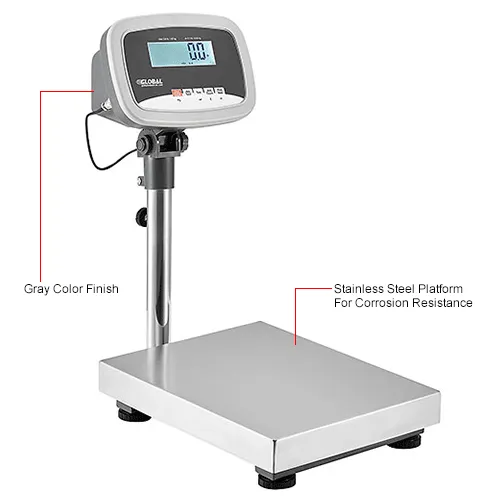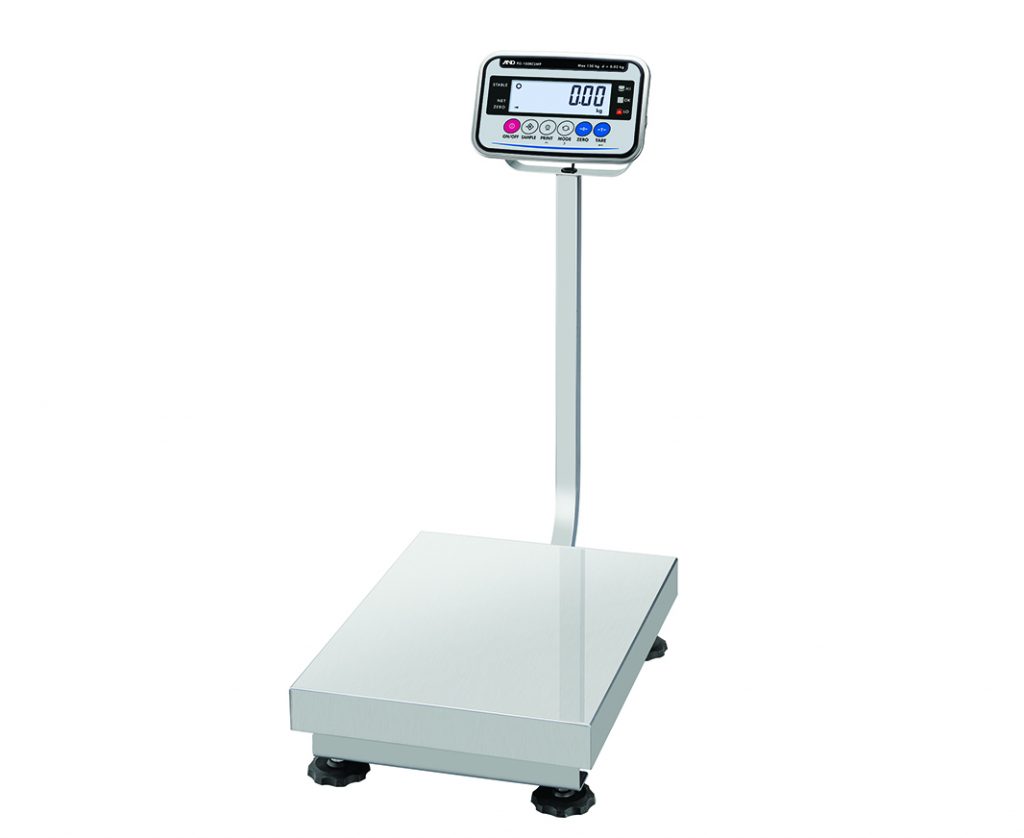Just How Industrial Scales Improve Accuracy in Production and Logistics
Industrial scales are important to the accuracy required in manufacturing and logistics, as they straight affect the accuracy of weight measurements vital for reliable manufacturing and inventory methods. Industrial Scales. By guaranteeing that materials are considered accurately, organizations can minimize mistakes that can lead to significant financial consequences. The introduction of sophisticated modern technologies in weighing systems is transforming conventional procedures. Understanding the full degree of these improvements and their ramifications for future procedures invites a closer examination of how evolving methods can redefine accuracy criteria in the sector.
Significance of Precision in Workflow
In the realm of production and logistics, precision is the keystone of operational effectiveness. Accurate dimensions are vital for maintaining quality assurance, enhancing resource allowance, and guaranteeing conformity with industry requirements. When operations depend on precise data, organizations can reduce waste, boost production timelines, and boost overall efficiency.
The significance of precision expands beyond basic measurement; it likewise affects decision-making processes. For instance, specific weight readings can establish suitable supply levels, enhance supply chain logistics, and facilitate precise invoicing. Mistakes in dimensions can lead to pricey mistakes, such as overflow or underestimating material requirements, which can endanger job timelines and earnings.
In addition, precision in operations cultivates a society of liability and quality assurance. By executing extensive dimension criteria, companies can identify ineffectiveness and pass enhancements, eventually causing boosted consumer fulfillment. In a period where competitors is strong, the capability to provide products and services with accuracy can be a distinct variable that establishes a firm apart. Therefore, spending in accuracy measurement tools, such as commercial scales, is not just a technical consideration yet a calculated imperative for success in the manufacturing and logistics fields.
Kinds of Industrial Scales
Various sorts of commercial scales play an essential function in achieving the accuracy needed for efficient manufacturing and logistics procedures. Each type is made to satisfy particular demands, ensuring exact measurement of products, products, and elements.
One usual kind is the platform scale, which offers a level surface area for considering large products or bulk products. One more kind is the bench range, commonly smaller and used for evaluating private plans or smaller sized sets of products.
For applications where precision is crucial, logical equilibriums are utilized. These high-accuracy scales are made use of in labs and study setups to gauge tiny amounts with utmost accuracy. Flooring scales, developed for durable weighing, are optimal for evaluating large pallets or containers, typically integrated with forklifts for efficiency.
In addition, lots cells are made use of in numerous applications for real-time weight dimension and information collection. Each of these scales contributes uniquely to the functional effectiveness, making sure that services can preserve accuracy throughout their production and logistics procedures. Comprehending the sorts of commercial ranges is vital for enhancing performance and attaining operational excellence.

Effect On Stock Administration
Precise evaluating is critical for reliable inventory management, as it straight affects supply precision and functional performance. In production and logistics, specific dimension of products and items guarantees that stock records reflect actual stock levels, reducing discrepancies that can result in overstocking or stockouts. Industrial scales offer the required precision to evaluate items accurately, allowing services to preserve a trustworthy stock system.
In addition, article source exact considering adds to better forecasting and planning. With specific information on stock levels, companies can make enlightened decisions regarding purchase and manufacturing routines. This reduces the threat of excess stock, which can connect up capital and rise storage space expenses, as well as protect against lacks that may interfere with procedures.
Furthermore, the integration of commercial scales with supply administration systems facilitates real-time monitoring of stock activities. This enhances the process of upgrading inventory documents, improving transparency and responsibility throughout the supply chain. Ultimately, exact weighing not just supports reliable inventory management however also drives total operational effectiveness, enabling services to respond quickly to market needs and maintain an one-upmanship in their particular sectors.
Enhancing Quality Control
Efficient supply administration not just ensures ideal supply levels however additionally lays the groundwork for robust top quality control processes. Industrial scales play a crucial role in improving quality assurance by providing precise weight dimensions that are essential for preserving item honesty. Consistent weight verification makes it possible for manufacturers to follow specs, making certain that each item satisfies the necessary top quality criteria.
In high-stakes environments, such as food production or pharmaceuticals, even small weight disparities can bring about significant compliance problems. By integrating industrial ranges right into the manufacturing line, firms can check product weights in real time, enabling instant restorative activities if problems are detected. This proactive approach reduces waste and enhances overall product dependability.
Additionally, precise evaluating assists in far better solution of resources, which is vital in sectors such as cosmetics and chemicals. By making certain that active article ingredient proportions stay constant, makers can accomplish remarkable item high quality, boosting consumer satisfaction and lowering returns.
Future Patterns in Evaluating Technology
The future of considering modern technology is poised for significant advancements driven by automation, connection, and data analytics. As industries advance, the assimilation of sophisticated sensing units and IoT (Net of Things) capabilities will certainly enable real-time surveillance and coverage of weight data. This connection will not just improve operational performance but additionally assist in predictive upkeep, decreasing downtime and boosting efficiency.
In addition, the consolidation of fabricated intelligence and artificial intelligence formulas into evaluating systems will boost data analysis capacities. These technologies can determine patterns and abnormalities, permitting even more enlightened decision-making and optimized supply chain administration. In addition, the rise of cloud-based services will make it possible for smooth data sharing throughout platforms, guaranteeing that stakeholders have accessibility to current information whatsoever times.
Sustainability will certainly also play a vital duty in future considering technology. As businesses strive to reduce their carbon footprint, evaluating systems that integrate energy-efficient styles and materials will end up being progressively crucial. Furthermore, innovations in electronic considering ranges will certainly sustain far better source monitoring by supplying specific dimensions that lower waste.
Verdict
To conclude, industrial scales considerably enhance accuracy in manufacturing and logistics by offering accurate weight measurements vital for effective operations. Their role in stock administration, quality assurance, and assimilation with innovative modern technologies underscores their importance in reducing inconsistencies and enhancing resource allocation. As industries proceed to evolve, the fostering of cutting-edge evaluating services will better sustain operational efficiency and lower waste, inevitably adding to boosted efficiency and competitiveness in the market.
One typical type is the system scale, which gives a flat surface for evaluating bulk materials or huge products. An additional kind is the bench scale, commonly smaller and made use of for evaluating individual plans or smaller sets of products. Floor ranges, developed for sturdy evaluating, are ideal for evaluating large pallets or containers, commonly integrated with forklifts for effectiveness.
Industrial ranges offer the necessary precision to consider products properly, enabling businesses to preserve a dependable supply system.
